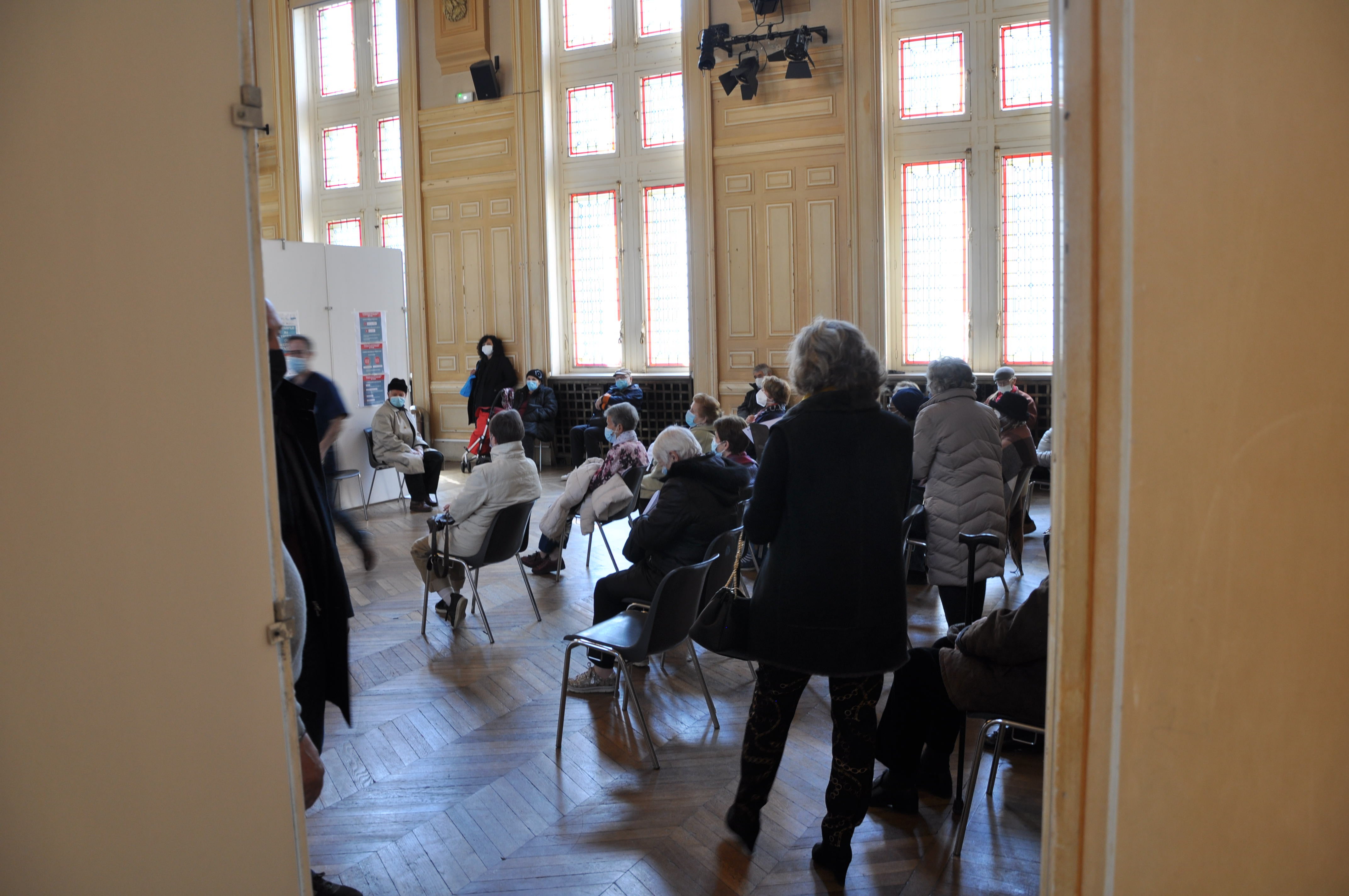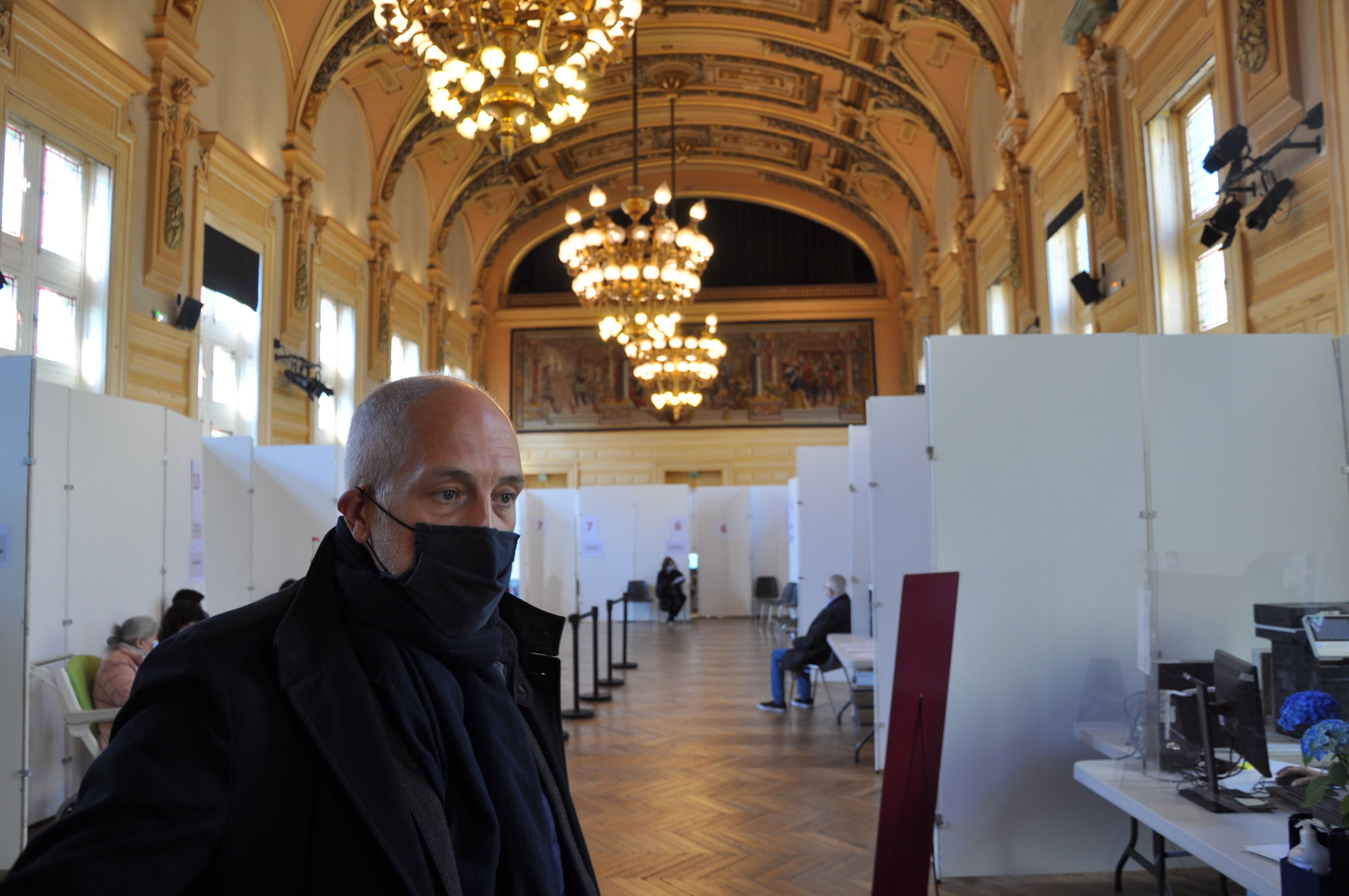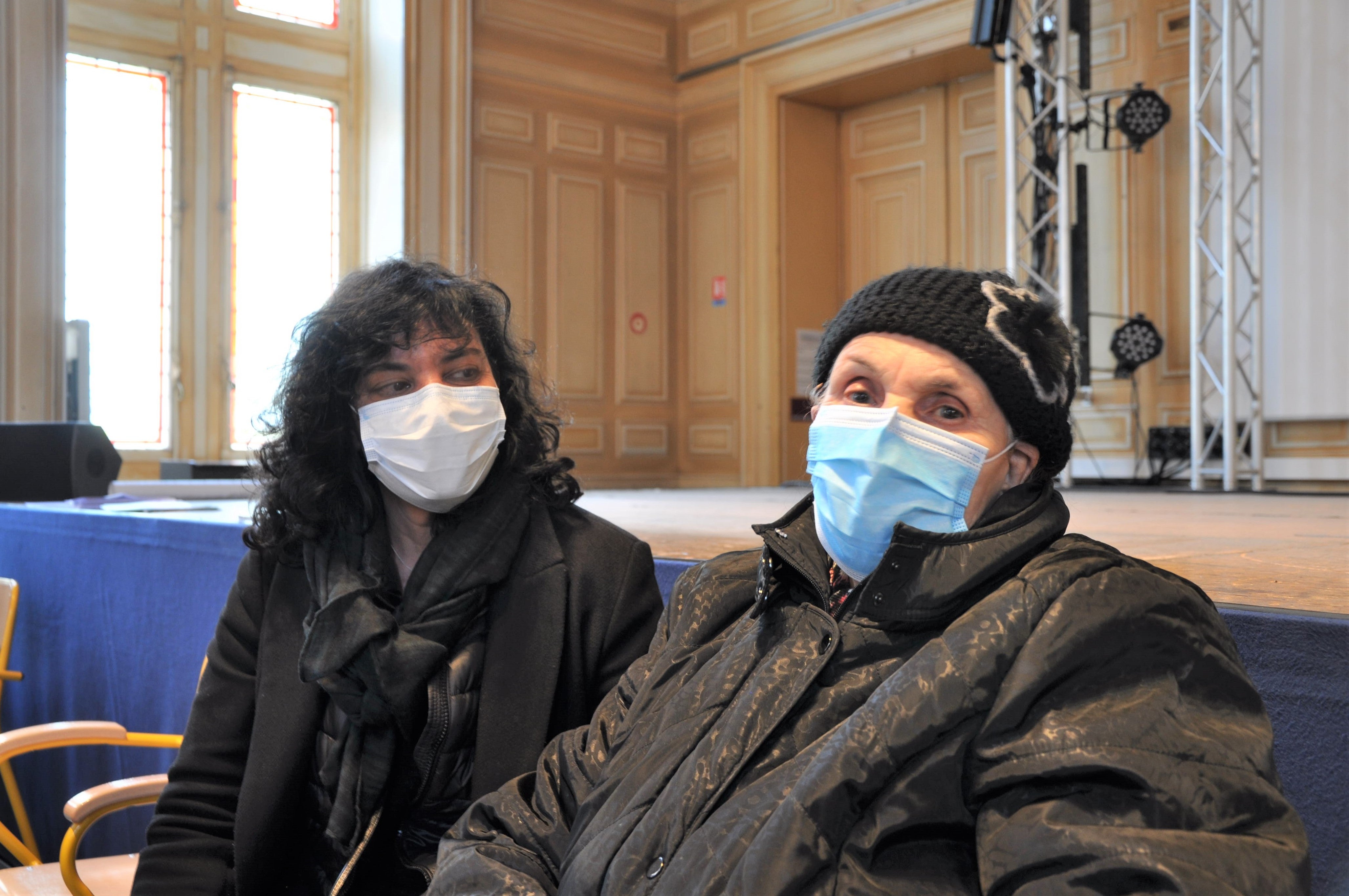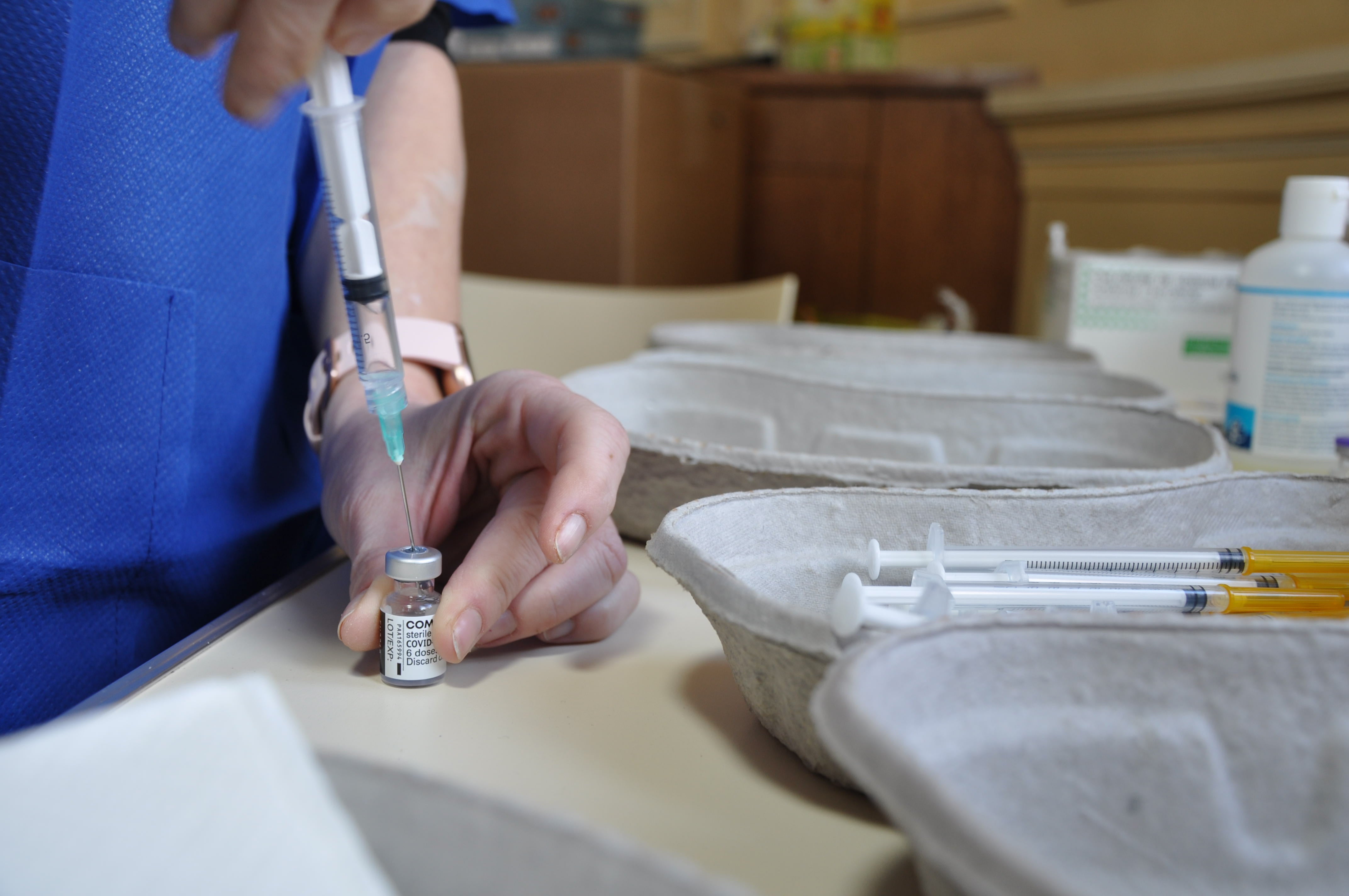How vaccine scepticism conquered the French mainstream
As the country’s vaccine rollout picks up pace, widespread scepticism risks leaving France with more vaccines than arms to put them in, writes Per Søreide Senstad

Logan Fenandez, a nurse at the Adolphe de Rothschild Foundation Hospital in Paris, spends his days caring for Covid-19 patients in the hospital’s intensive care unit. While he and his colleagues are first-hand witnesses to the damage that the virus can do, many do not want to get vaccinated against it.
“There is a lot of scepticism, and it is hard to explain why,” Fernandez said. “Some of my colleagues think the coronavirus vaccines are dangerous, others fear potential side effects and prefer to wait.”
The views of Fernandez's co-workers are commonplace in France. A recent survey found that 25 per cent of French general practitioners were hesitant to either recommend Covid-19 vaccines to their patients, or be vaccinated themselves. Vaccine hesitancy is even more prevalent in the general population. In an Ipsos poll from December 2020, 23 per cent of Brits and 35 per cent of Germans said that they did not want the vaccine – in France, the number was 60 per cent.
The scepticism is not only found on the fringes of French society, but also in doctors’ offices, hospitals, and the columns of mainstream newspapers. As a result, the country’s Covid-19 vaccination campaign risks fizzling out before the population is fully protected and normalcy can be restored.
The reformists say ‘we do not have an issue with vaccines in general, but only with this particular element’. By limiting their critique, they gain access to the mainstream media
“I encounter vaccine hesitancy every day, among patients and my co-workers,” said Célestin-Alexis Agbessi, an emergency doctor at the Bichat Claude-Bernard Hospital in Paris. A study conducted at private nursing homes in France found that only 19 per cent of caregivers were willing to be vaccinated.
In Dr Agbessi’s view, the hesitancy found in hospital halls reflects society at large. “I believe they are sceptical not because they are nurses, but rather because they are members of a society where vaccine hesitancy has become normal.”
Until the early 2000s, vaccine hesitancy was no more prevalent in France than in any other European nation. Since then, unfavourable views of vaccines have increased radically. Jeremy Ward, sociologist and member of the French government’s advisory committee on vaccination policies, points to a number of public health controversies to explain the rise: “In this country, we have had a continuous debate about the safety of vaccines for years.”
According to Ward, the first public dispute was over the Hepatitis-B vaccine at the end of the 1990s, and whether it caused multiple sclerosis, a potentially disabling neurological disorder. A similar debate resurfaced in 2009, over the safety and usefulness of the swine flu vaccine. In recent years, concerns on the use of aluminum in vaccines have been part of the French public discourse. “As these debates have rolled on, general vaccine hesitancy has grown,” Ward explained.
Through his research, Ward has identified two distinct types of vaccine sceptic activists: “radicals”, who reject the usefulness of vaccines altogether, and “reformists”, who problematise a particular vaccine or a specific feature of modern vaccine technology. It is the latter group who has brought vaccine hesitancy into the French mainstream, Ward believes.

“The reformists say ‘we do not have an issue with vaccines in general, but only with this particular element’. By limiting their critique, they gain access to the mainstream media and are perceived by the broader public to be credible. This is something that radical vaccine sceptics never have been able to achieve,” said Ward.
One of the most vocal reformist groups is E3M, an organisation which, according to its website, is not against “the very principle of vaccination,” but opposes the use of aluminium in modern vaccines.
Ward maintains that the group has been able to sow doubt about the safety of aluminum-based vaccines despite the scientific consensus that they are safe and effective. “I believe they are wrong, but E3M spends its time funding legitimate research published in mainstream journals. That approach is very different from those who argue that vaccines are part of a global conspiracy.”
Now, vaccines, not the viruses, are perceived as the main risk factor. This is completely absurd
Dr Agbessi believes that vaccines are suffering from their own success, as the French public no longer can see for themselves how diseases such as Smallpox can destroy a human body. “The collective risk-benefit calculation has completely shifted. Now, vaccines, not the viruses, are perceived as the main risk factor. This is completely absurd.”
After weeks of deliberation, Logan Fernandez, the Parisian nurse treating coronavirus patients, has decided that he will be getting the jab. “I am surrounded by Covid victims every day and found out that I would be a hypocrite if I complain about the crisis while refusing to be part of the solution.”
Across France, politicians and public servants hope that more French people will come to the same conclusion as Fernandez. In the 13th arrondissement of Paris, the grand town hall from 1877 has been transformed into a vaccination centre, with residents receiving Covid 19 jabs under chandeliers and golden ornaments.
As other EU countries, France is lagging behind the US and the UK in the effort to vaccinate their populations. As of mid-May, around 15 per cent of the population is fully vaccinated. The 13th arrondissement has yet to complete the vaccination of its oldest and most vulnerable citizens, and the town hall is filled with silver-haired Parisians, patiently waiting their turn.

Among them is 87-year-old Tassadi, accompanied by her daughter Fatima. Initially reluctant to be vaccinated, particularly during the Muslim holy month of Ramadan, she was convinced by her daughter to accept the offer from the arrondissement. “There is a lot of doubt and uncertainty, also my husband has been hesitant, but I think we all have to take the vaccine and get on with our lives,” said Fatima.
Many town hall employees have set aside their normal jobs, as the whole organisation remains in pandemic mode more than a year after the initial coronavirus outbreak.
“It is really important that we get this right,” said Benjamin Rataud, deputy director of the Mayor’s cabinet in the 13th arrondissement. Nodding to queuing citizens, left and right, while making his way through the vaccination centre, he explains that there are currently more people wanting to get the jab than vaccines available.
In the months ahead, as ever-more vaccines are produced, this might change. “I am afraid that people think about whether to get vaccinated simply as an individual choice, when really it is about strengthening our collective capacity to hinder new transmissions. Everyone has to do their part,” Rataud stressed.
Statistically I will not die from Covid, so why should I accept the risks that come with vaccination?
The controversy surrounding the AstraZeneca vaccine has not made it easier to build confidence around the public vaccination effort, and some say that the Macron government has amplified concerns through inconsistent communication. In January, President Macron publicly described the British vaccine as “quasi-ineffective” for older people. A month later, he said that he personally would be happy to get vaccinated with AstraZeneca.
After a rare correlation between AstraZeneca and blood clots was identified, all European countries temporarily halted its use. While some governments have made that pause permanent, France now offers the vaccine only to residents over the age of 55.
“They were so stupid to talk down AstraZeneca, then defend it, then cancel it, then reintroduce it. People feel like guinea pigs,” said journalist Thomais Papaioannou, who had one of the two required doses of AstraZeneca before it was restricted to residents above the age of 55. “The whole controversy has done a lot to damage trust in the government.”
“Nobody wants AstraZeneca,” said Sophie Dubois, coordinator of medical personnel at the vaccination centre in the 13th arrondissement. When nurses from the town hall recently went from door to door to offer the vaccine to eligible residents, the vast majority turned them down. Across France, vaccination centres are struggling to distribute the AstraZeneca-doses available.

At the vaccination centre, they now rely primarily on the German American Pfizer BioNTech vaccine, stored in a special refrigerator at minus 70 degrees Celsius. While a nurse prepares a new batch of syringes with valuable Pfizer-drops, Dubois says that she prays that no unexpected side-effects arise from this vaccine: “If that happens, our vaccination campaign might soon be dead.”
According to a survey from last spring, people under the age of 35, as well as supporters of the political far right and far left, are over-represented among French citizens who do not want the vaccine.
Anne, a 26-year-old lawyer, is one of the young people not wanting to be vaccinated. “I am not a crazy person, I am not against vaccines per se,” she said. “But there is always a cost-benefit consideration. I can die from Tuberculosis, so I take the vaccine. Statistically I will not die from Covid, so why should I accept the risks that come with vaccination?”
The French have lost their confidence in politics and the political class. People will not be convinced by arguments or statistics provided by a government they do not trust
Asked whether she has a collective responsibility to get vaccinated, Anne points to what she sees as failed government policies. “French hospitals have been underfunded for years, and now they say that we all have to get vaccinated and set our lives on pause so that emergency rooms are not overloaded? That whole logic makes me angry.”
France has been hard hit by the pandemic, with more than 100,000 dead. Only 35 per cent of the French think that the Macron government has managed the pandemic in an effective way, according to an April poll. However, as summer approaches, recent data suggests that popular opinion is gradually shifting in favour of Covid-19 vaccines.
“I feel like people’s stance on vaccines is an indication on whether they support the government or not,” said Claire Riobé, a Paris student. “I see this among my friends, those who voted for Macron are pro vaccines.”
Read More:
According to the sociologist Jeremy Ward, opposition to Macron can only explain some of the vaccine scepticism. “If you ask people in France if they support a new government initiative, they are expected to say no, it is part of our political culture. This can explain some of the negative views on the new Covid vaccines, but not the general levels of vaccine hesitancy that we have measured for years.”
Logan Fernandez, the Parisian nurse, is happy that he got the jab. Yet he doubts that the government will be able to win over his colleagues and other vaccine sceptics by the power of reason. “The French have lost their confidence in politics and the political class,” he said. “People will not be convinced by arguments or statistics provided by a government that they do not trust.”
Join our commenting forum
Join thought-provoking conversations, follow other Independent readers and see their replies
Comments
Bookmark popover
Removed from bookmarks